Useful information for part-time instructors at CCSF
On this page you will find links to valuable information for adjunct faculty including:
Assignment Rights Booklet, Unemployment instructions, Unemployment Appeal Letter (MS Word document), How to handle EDD phone interviews (pdf), Paid Office Hours, Sick Leave, Voluntary Sick Leave Bank, Health Insurance, Retirement Primer (pdf), Retirement Options and Issues (pdf), Professional Development, and information about SDI part-timers. Also check out the Part-time Salary Comparison Report 2013 (Excel workbook) courtesy of the CFT Research Department (the report will download once you click the link).
We know that you are very busy but we hope you will set aside a half-hour or so to really look over the information below. If you don’t understand something and need assistance, talk to more experienced colleagues, your precinct rep, or someone at the union office (415-585-2121) to get clarification. Don’t be ignorant of your working conditions and your rights!
Pay at CCSF
At City College, part-timers’ pay is “pro rata,” meaning that part-timers are paid from a salary schedule that mirrors the full-timer schedule. The schedule has columns, which reflect increasing amounts of education, and rows, sometimes called “steps,” which reflect years of experience. At the beginning of each semester you need to check your pay to make sure it correctly reflects the educational units you’ve earned and the years of experience you have accumulated (subject, of course, to the limitations put on counting part-timers’ experience). Please click here to see how to check your check under the new pay-by-the-load system of pay, which affects the majority of the faculty at CCSF. Note that pay for substitute teaching is extra and will be paid on a pay-as-you-go basis. Pay for office hours is still at the end of the semester upon submission of a time sheet.
Currently the pro-rata for part-timers at City College is 86%; that is, a part-timer is paid 86% of what a full-timer receives for each in-class hour. The current difference in pay (the 15% less that part-timers are paid) reflects the time spent on additional professional duties that full-timers are expected to perform, such as participation in departmental and college-wide committees and holding office hours, for which credit instructors are currently paid extra.
Please note that the way pro-rata is calculated includes preparation time insofar as the calculation is based on full-timers’ in-class time only. By this method of calculation it could be said that neither the part-timer nor the full-timer is paid for prep; however, it is assumed that for credit instructors, both full- and part-time, there will be an hour’s prep for every hour in class, resulting in a combined teaching and prep time of 30 hours per week for a full-time load.
(Article 20.A.6.1) (Credit only) Hourly pay is from the 86% Instructionally-related Pro-rata Scale. Part-timers teaching up to 20% of a full-time load are eligible for 4 paid office hours per semester; part-timers teaching 21-39% are eligible for up to 8 paid office hours; part-timers teaching 40% or more are eligible for up to 15 paid office hours. There is a maximum of 2 paid office hours in any one week. The instructor must provide written notice of office hours in advance to students and department chairs and later submit a time sheet signed by the department chair indicating where and when hours were held. (Some creativity may be required in finding places to hold your office hours, but it can be done.)
Ancillary Activities
As a part-timer, you are probably aware that your teaching load is limited by the California Ed Code to a maximum of 67% of full time. A new development at CCSF is the availability to part-timers of employment opportunities with the college performing ancillary activities, i.e., non-teaching positions such as grant writing and test coordination. A complete list of these activities does not exist. If you and your department chair agree that there is a non-instructional activity that you could perform for your department, encourage the chair to contact the Ancillary Activities Committee to determine whether that activity falls within the guidelines.
a. .057 hour of sick leave is accumulated for each hour you teach (Article 17.C.1.2) The total is noted on your paycheck. (Summer school sick leave is not accumulated beyond the summer school session, but you may use previously accrued sick leave during summer school.)
b.Part-timers who are being paid by load, which is most part-timers as of now, will see “sick load” on their paystubs This is how it works. Your old, accumulated sick hours remain on your check. Your current sick hours are being computed as “sick load.” Your own actual class contact hours for the whole semester are calculated and then multiplied by .057. The result is your particular “sick load” for the semester. This amount was put onto your check early in the semester. Do not expect to see this figure go up during the semester, as do the sick hours you may be accustomed to. Instead, you are being credited ahead of time for all the sick hours you would normally accumulate during the semester, hence “sick load.” At the end of the semester, your remaining sick load will be converted back to sick hours for the sake of record keeping.
c. You may transfer accumulated sick leave from your previous public school employer to CCSF. (Article 17.C.4)
Voluntary Sick Leave Bank (VSLB)
a. The benefit:If your accumulated sick leave is used up and you are a member of the VSLB, you may receive up to 100 days of sick leave, ending at the end of the semester. The VSLB may only be tapped twice in a lifetime unless the VSLB Committee rules to make an exception.
b. The cost:Currently part-timers contribute one hour of accumulated sick leave to become a member of the Bank and one hour thereafter whenever the Bank reopens in order to maintain membership.
c. You will be notified of your opportunity to join the VSLB within the first semester of your employment. If you fail to join at that time, you will not be able to join until the next time the VSLB opens, which could be years later. If you do not respond in a timely manner (i.e., within the month), it will be assumed that you are not interested. Be on the lookout for the invitation, or contact Lety Santana Sazo in Human Resources (415-487-2443) to be sure not to miss this opportunity.
Maternity Leave
For physician-confirmed disability associated with pregnancy or childbirth, part-timers have up to 6 weeks paid maternity leave (Article 17.G). In addition, pters already enrolled in medical and dental benefits may have them extended for up to 12 weeks while on unpaid leave (Article 21.B.1.4).
San Francisco’s Health Service System (HSS) is the agency through which CCSF’s health coverage is administered. Both the district and AFT 2121 are working to bring CCSF employees better/cheaper coverage than HSS provides, but HSS is what we have at the moment.
a. You are eligible for coverage if you are beginning at least your third semester and teach 40% or more of a full-time load. You select your coverage when you first become eligible.
b. If you are covered during the spring, you will have continued coverage during the summer. (Your share of the cost of summer coverage will be deducted from two or three late spring paychecks.) You will not have to re-enroll in the fall, nor will you be able to make any changes in your coverage in the fall. For you, all changes in coverage must be made during Open Enrollment, usually in April.
c. If you don’t teach in the spring, you will not be covered for summer and will have to re-enroll for coverage in the fall. Any changes you want in coverage from what you may have had previously can be made when you re-enroll.
Retirement Benefit options
Click here to download an in depth synopsis of part-timer options and issues in pdf format.
Upgrading (Article 12)
Be warned that few full-time openings occur each year. We at AFT 2121 have been working to change this situation, but we are working against entrenched practices.
Professional Development
(Both for its own sake and for movement across the salary columns)
a. Funding:This varies from year to year depending on the State budget and grants, but be aware that often funding is available. AB 1725 funding, if available, requires an application with deadlines. Check with the Professional Development Office at 31 Gough. If AB 1725 funds are low, check out the Academic Senate’s faculty travel fund or grants that may be available within your department.
b. Planning ahead: Rather than randomly taking coursework and getting pre-approval for credit toward column movement each time, you now have the option of creating a professional development plan (Article 20.D.4). If your plan is approved, continuing education units, seminars, and workshops, which usually don’t count towards column movement, will be counted so long as they are a part of the plan.
Assignment Rights for Faculty Working Part-time
— Assignment Rights Booklet
Voicemail, CCSF Network, GroupWise
Don’t be just a ghostly figure that drops by to teach and then disappears into the night. Connect with the institution by taking advantage of voicemail (415-452-5770), CCSF’s computer network (415-239-3711), and GroupWise, CCSF’s email program (415-239-3711). These are not just for full-time faculty. Increasingly, department and committee, as well as AFT2121, communications are taking place through email; a GroupWise account will facilitate your connection with the larger college community. In addition, you will need a CCSF Network account to access most of the CCSF computer resources available to you. Although the Technology Learning Center does provide workshops to help you use these accounts (415-239-3554), a lengthy orientation is not required to get started. Get yourself a voicemail phone number, a CCSF Network account, and a GroupWise account and be a player and a part of the whole college.
Other Communication
It’s easy to become overwhelmed with announcements and brochures that fill up your box. But if you want to be an informed professional at CCSF you will need to pay some attention to certain publications, especially a and b below.
a. City Currents is published by the Marketing and Public Information Office of City College. Besides articles and announcements about students, faculty, and general college goings on, the official minutes of the Academic Senate are published here.
b. AFT 2121 publishes Union Action and special one-page bulletins to keep you informed of contract and other employment issues, as well as CCSF-related political issues.
c. Other union publications:
Perspective, published by CCC/CFT (See “Unions,” below.)
California Part-Timer, also from the CCC
California Teacher, published by CFT
On Campus and American Educator, published by AFT
Contingent Faculty Bill of Rights, published by COCAL
d. www.ccsf.edu is City College’s website. Other important websites: www.cft.org and www.aft.org.
State and Local Community College Faculty Organizations
a. Unions you should know about:
American Federation of Teachers (AFT), which includes the California Federation of Teachers (CFT). The Community College Council (CCC) is a subdivision of CFT. Our local, AFT 2121 represents both full-time and part-time faculty at CCSF.
National Education Association (NEA), which includes California Teachers’ Association (CTA). CTA includes Community College Association (CCA/CTA).
California Community College Independents (unaffiliated organizations).
b. Academic Senate for California Community Colleges (local: CCSF Academic Senate)
c. Faculty Association of California Community Colleges (FACCC), a faculty lobby org.
d. Council of Faculty Organizations (COFO)
e. Committee on Political Education (COPE): AFT 2121 political action committee. Contributions to this are separate from dues. You will be asked to join,
f. California Part-Time Faculty Association (CPFA). Being on their list serve can be very stimulating for those who are interested in all manner of part-timer issues.
g. The FACCC has a part-timer listserve that you can subscribe to by sending a blank email with the word “subscribe” in the subject line to CCC-PartTime-subscribe@onelist.com
Getting the most from your union
Our goals: We part-timers here do pretty well compared to our colleagues around the state and the rest of the country, but we still have a long way to go to reach equity. Here is a list of some of the issues on which we part-timers need to work.
a. Pro-rata pay. The District and AFT 2121 have agreed that the desirable pro-rata for part-timers is 100%. Until the State budgets the money that will make this possible, we may be stuck at 86%. When we do achieve 100%, part-timers will be expected to perform their proportionate share of professional duties In the meantime, we need to be aware that it will take an enhancement of the so-called part-timer equity funding, a line item in the State budget, to get us to 100%. Be ready to be asked to call legislators to make this happen.
b. Long-term disability coverage. Faculty vested in STRS are covered for long-term disability. Other faculty are not. There is some movement statewide to get all faculty into the State disability program (SDI), but most of those already receiving disability coverage through STRS are reluctant to pay another 1% or so of their salary for a benefit they don’t need. Action is needed on the state level to get legislation to protect non-yet-vested-in-STRS faculty.
c. Improvement of the full-time to part-time ratio of faculty at CCSF (and around the state).As we part-timers are paid closer to 100% pro rata and (those working 50% or more) receive full medical benefits, it becomes less cost efficient for the District to keep so many of us at part-time. We may see some progress in this area in the next few years.
Your Union – What You Need to Understand
a. You are not a member unless you apply to become a member. As a member, you can get certain benefits such as reductions in price for some services such as car rental and pet insurance. As a member, you can vote to choose the leadership of the union and can serve as a delegate to union conventions. Unlike many unions, the AFT is organized from the bottom up. We do not take marching orders from our parent union, CFT in California and AFT nationally. They get their marching orders from us, the members. The recent improvements in statewide part-timer pay would never have been possible without the concerted work of your local, CFT, and CPFA. This work deserves your support. Please join the union. (This has been an unpaid political announcement.)
b. You are a member of a precinct based on either location or department. You have a precinct rep who goes to monthly meetings of the union to find out what is happening and to vote on your behalf on issues facing the union. Your precinct rep may know the answers to your questions about employment rights and responsibilities. If you have further questions or can’t track down your rep, call the union office directly at 415-585-2121. The people who will answer the phone when you call will connect you with the best person for the job.
State Disability Insurance (SDI) for part-time and full-time temporary faculty
Under agreement between AFT 2121 and the District, CCSF began SDI deductions of 1.2% of gross pay effective October 1, 2011, the beginning of the fourth quarter of earnings in 2011, for all “temporary” faculty at CCSF. These include part-time faculty and full-time temporary, i.e. LTS, Categorical, or Full-time Temporary upgrades.
Under SDI, disability claims are based on the highest quarter of earnings in a 12-month “base” period. Claims filed in April, May, or June are based on the 12-month period ending the previous December. Thus, the earliest a part-time/temporary faculty member would be eligible for SDI benefits based on CCSF earnings would be April 1, 2012.
SDI is a newly accessible benefit for part-time faculty in California’s community colleges, who until very recently had no access unless all faculty joined. Part-timers, who typically have fewer benefits than full-timers, lobbied CFT to help change the law and make this important benefit more available, and part-timers at City College of San Francisco will now join those at several other colleges around the state who receive SDI.

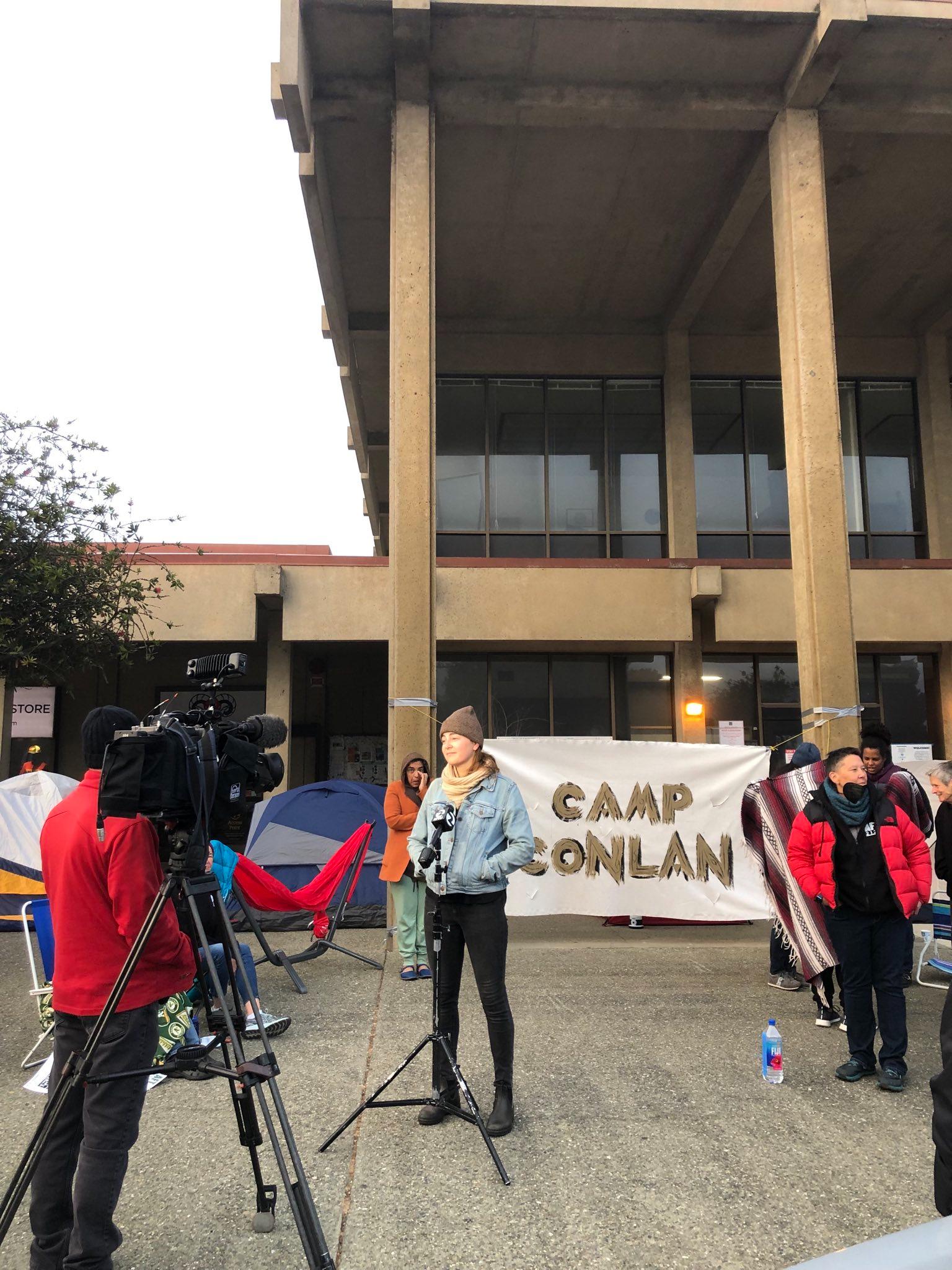
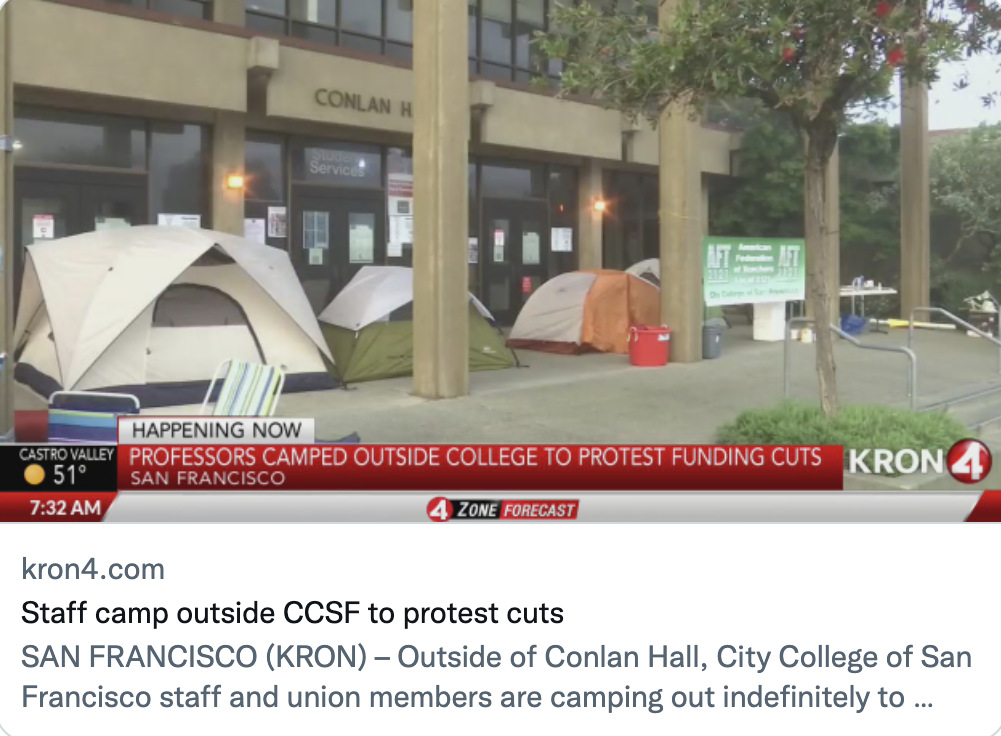

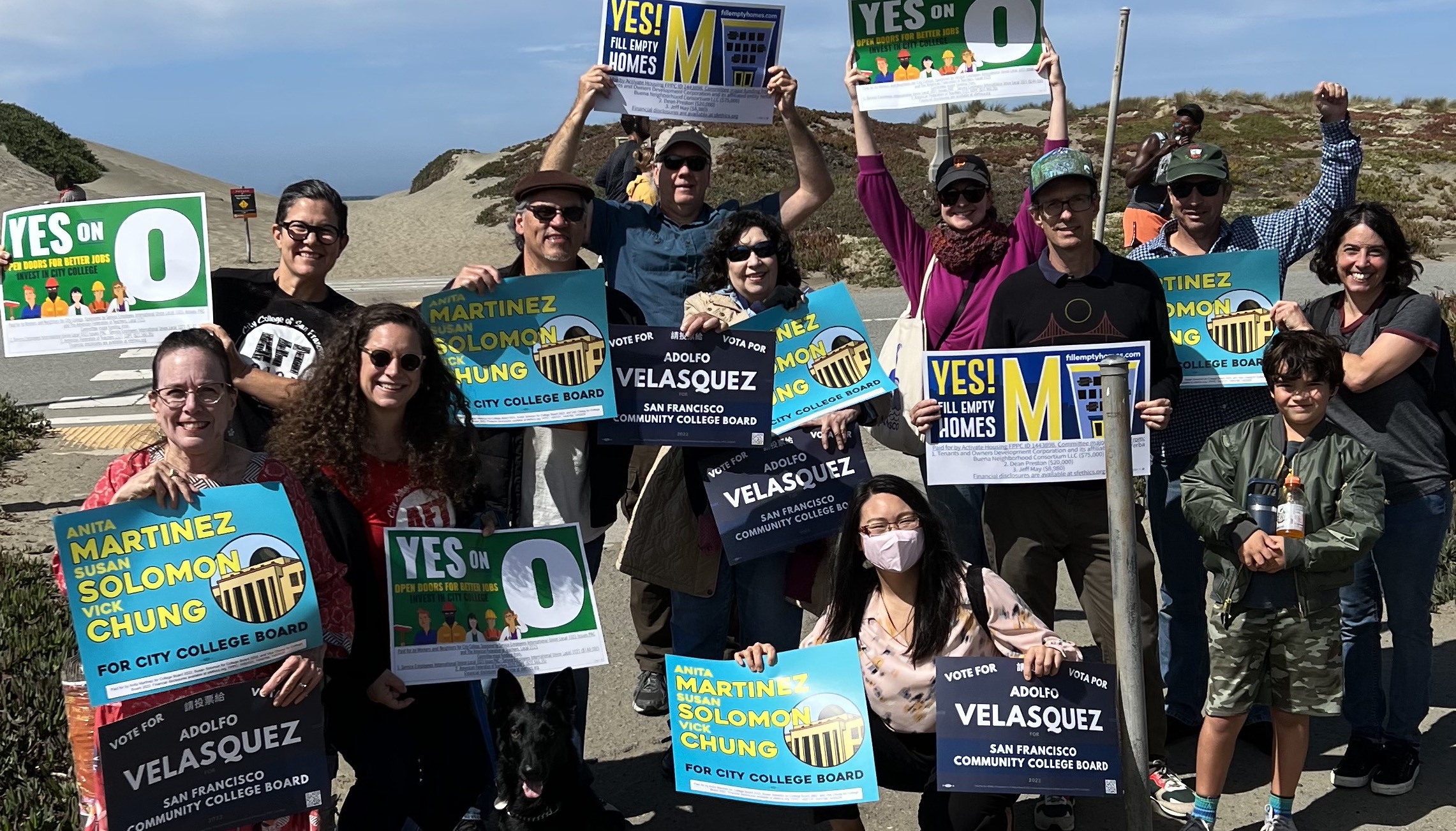





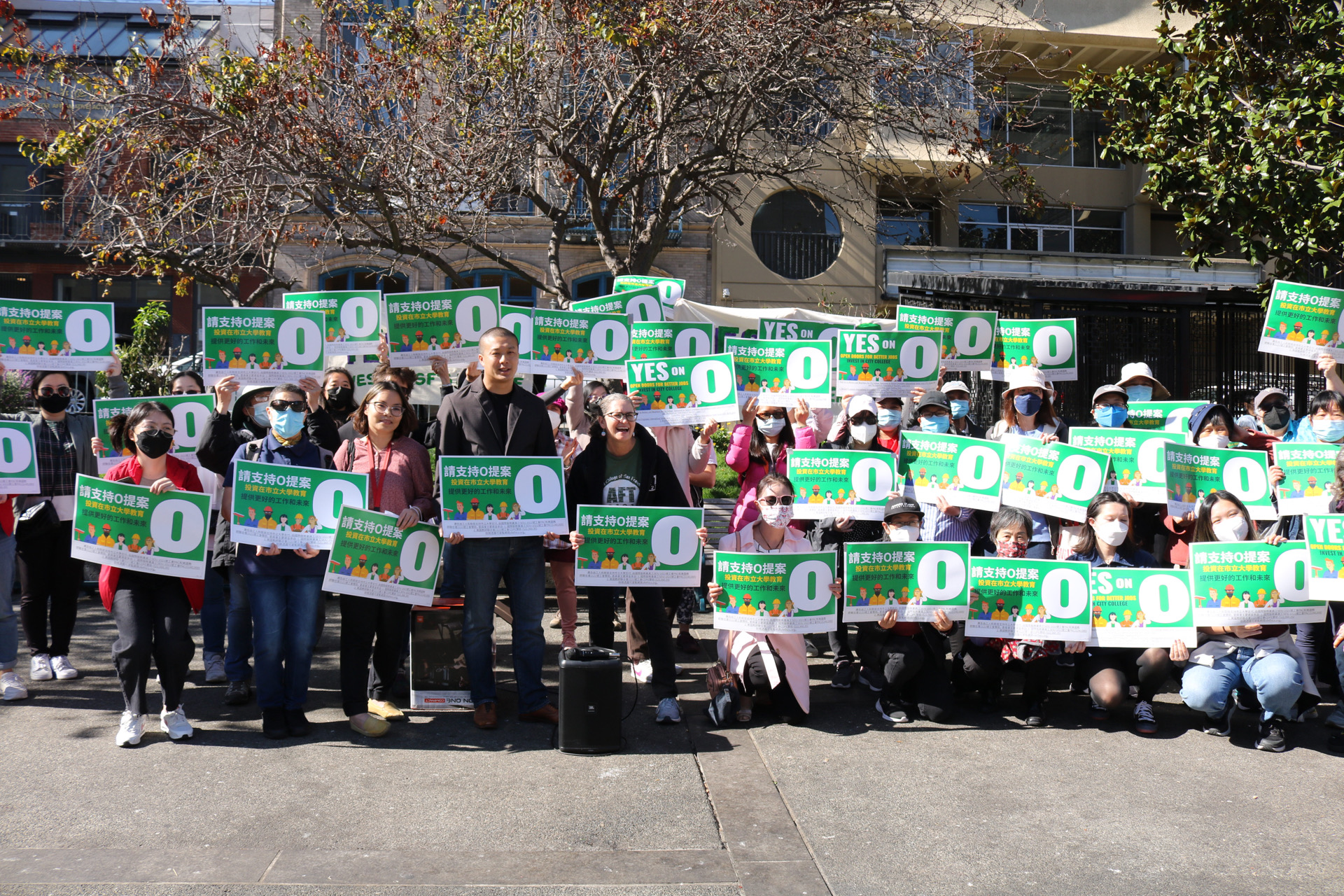
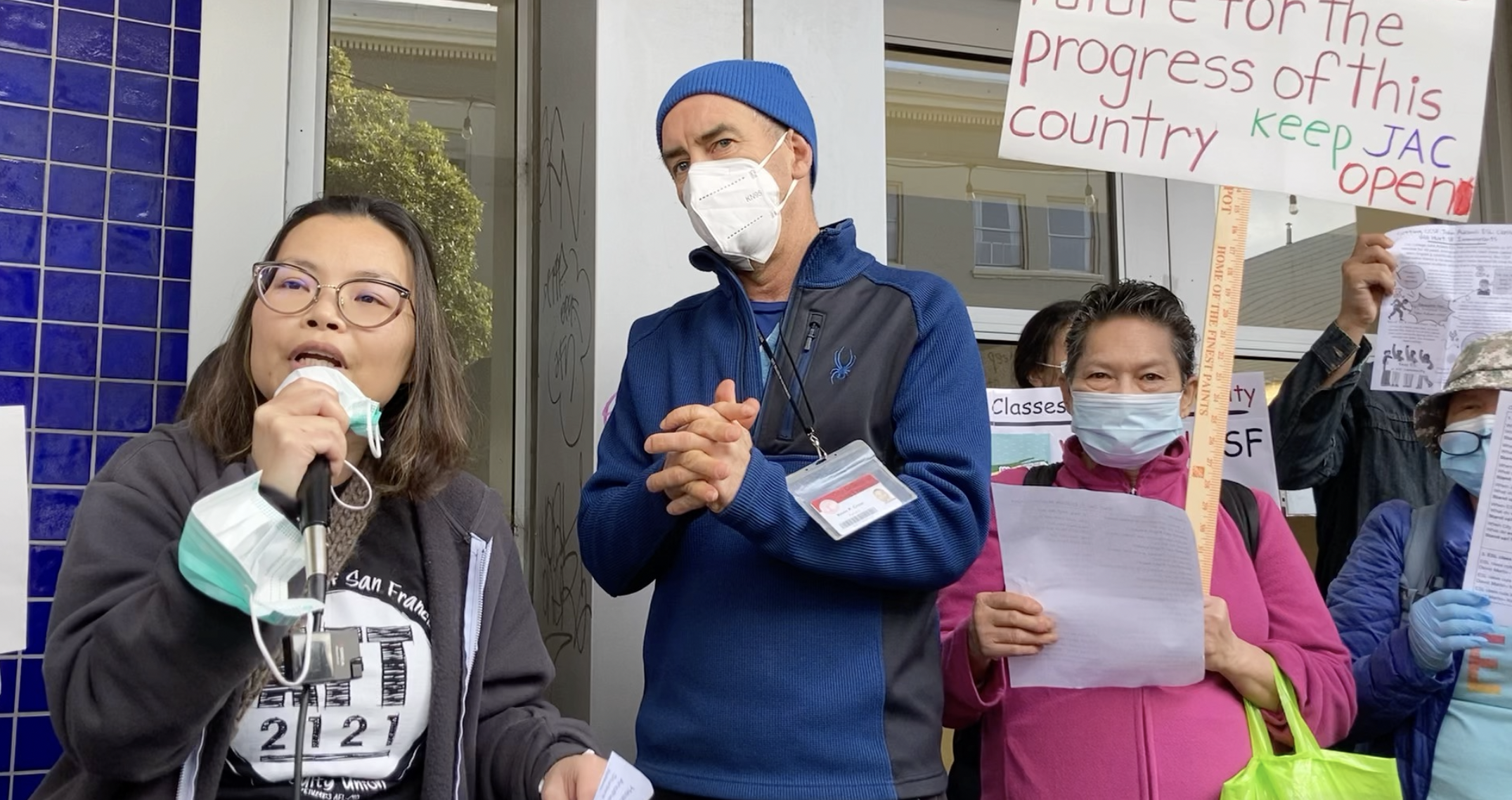
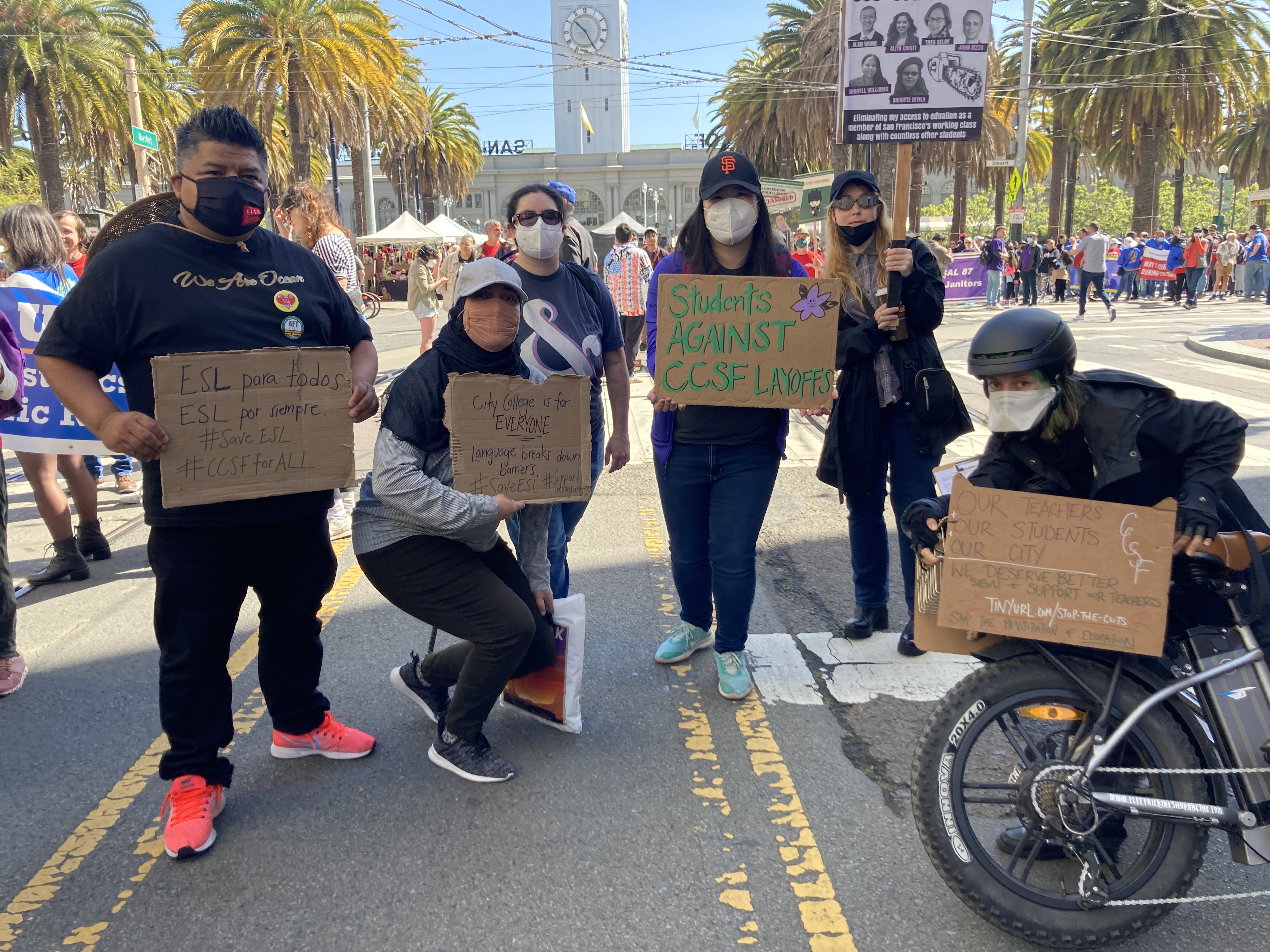

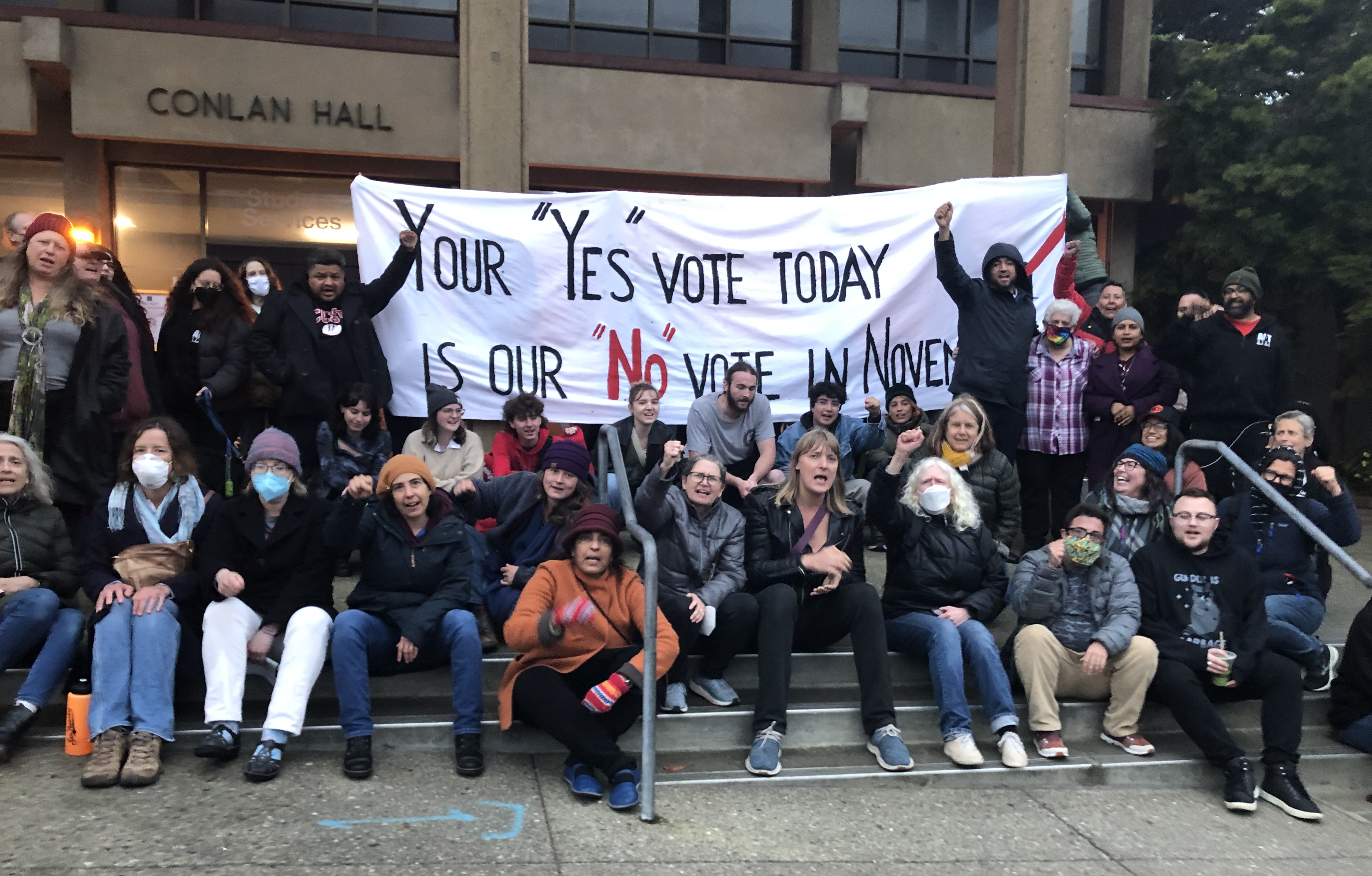

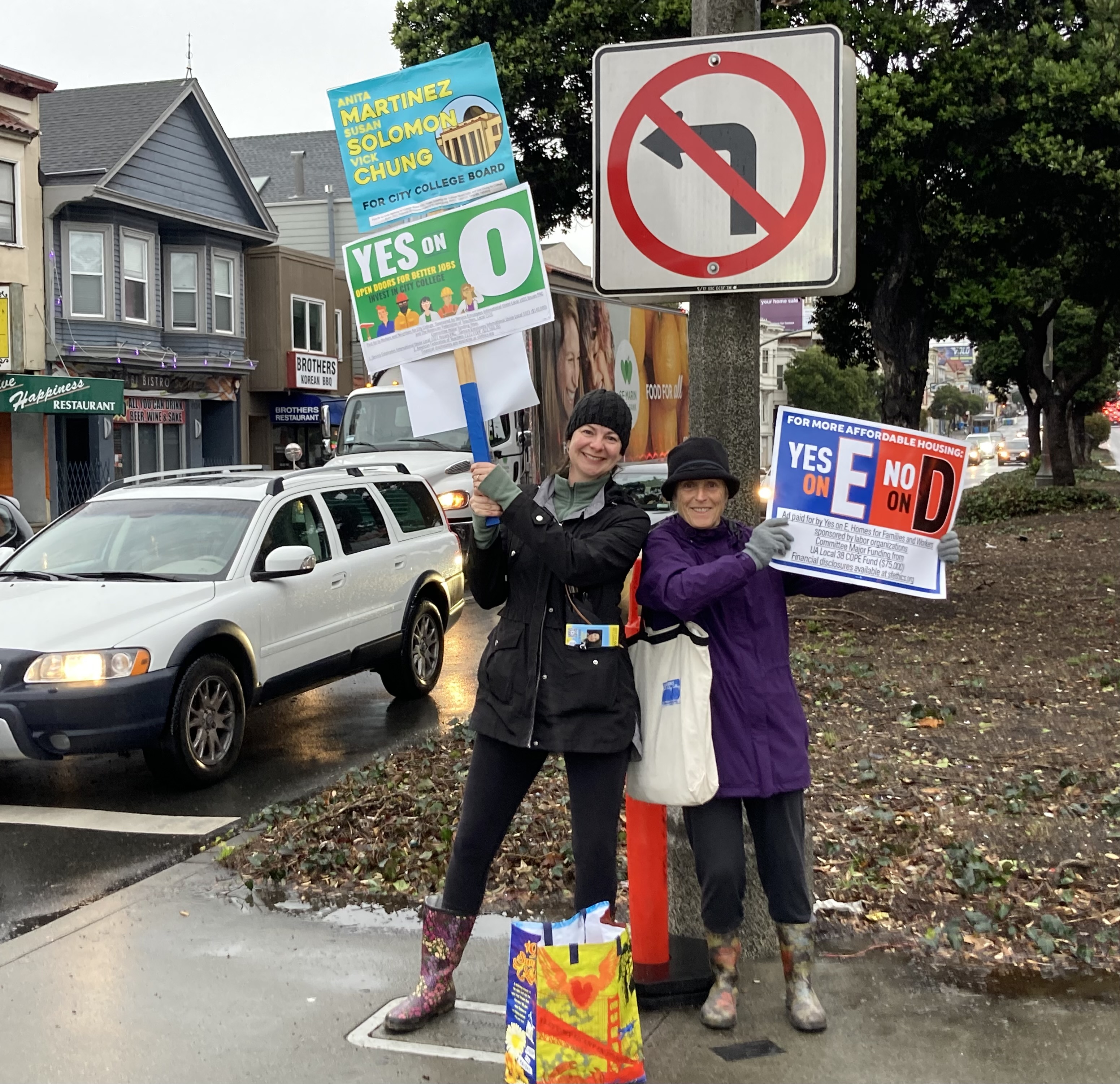
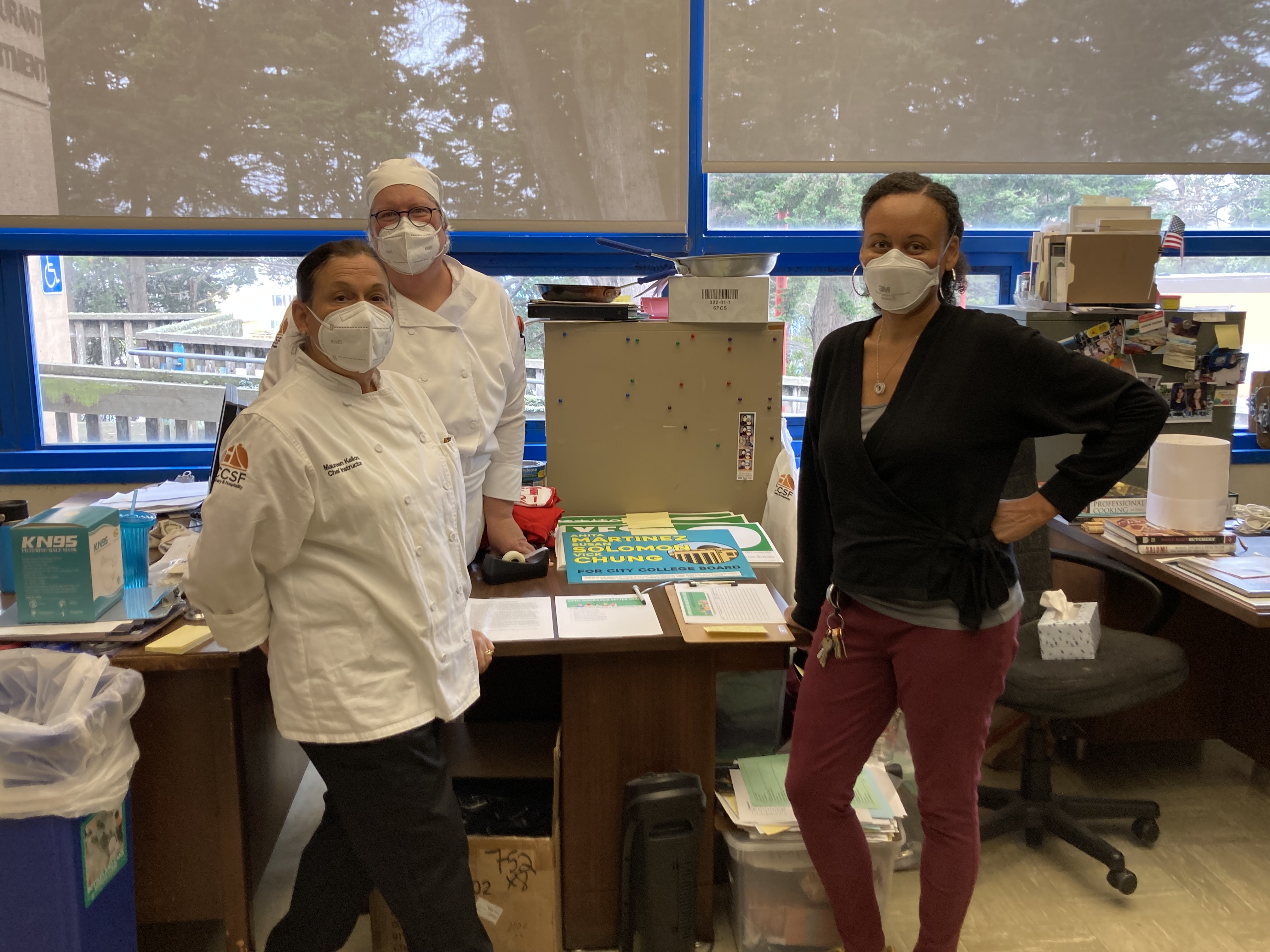

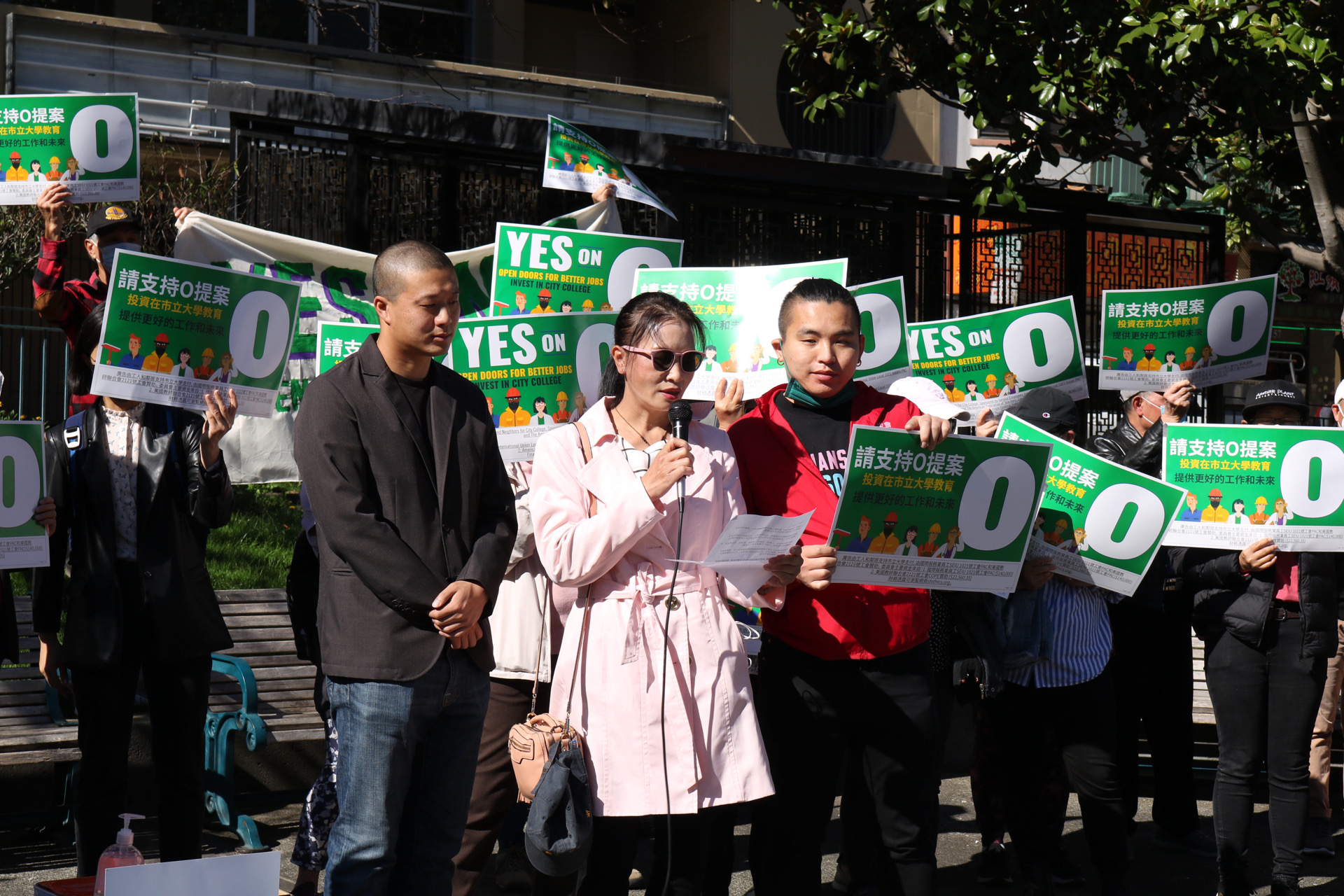
Follow Us!